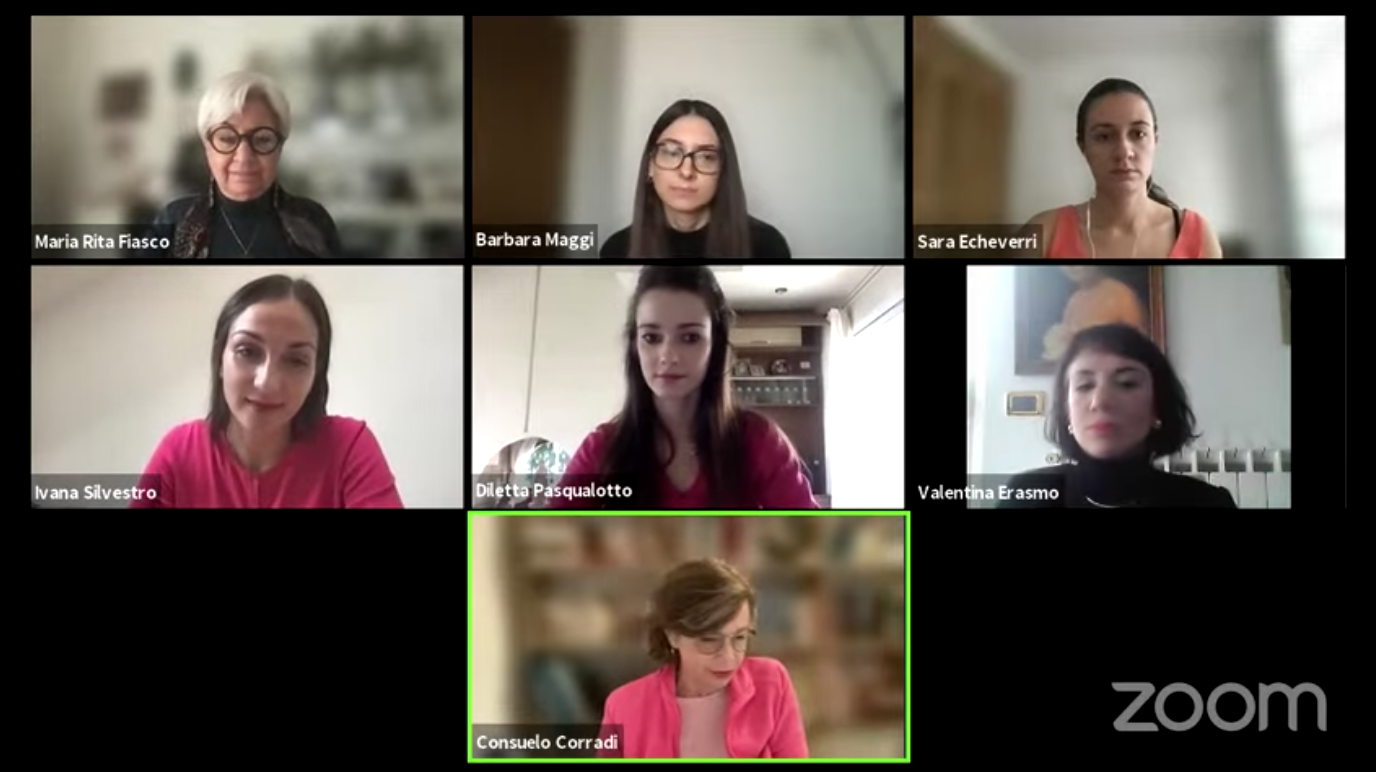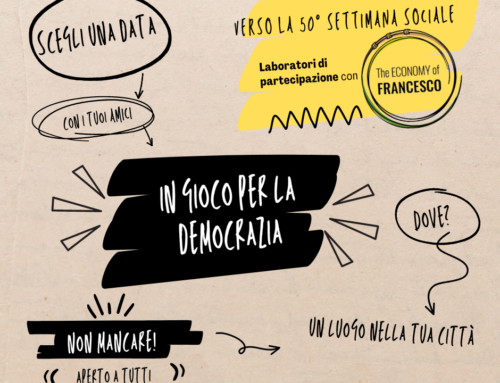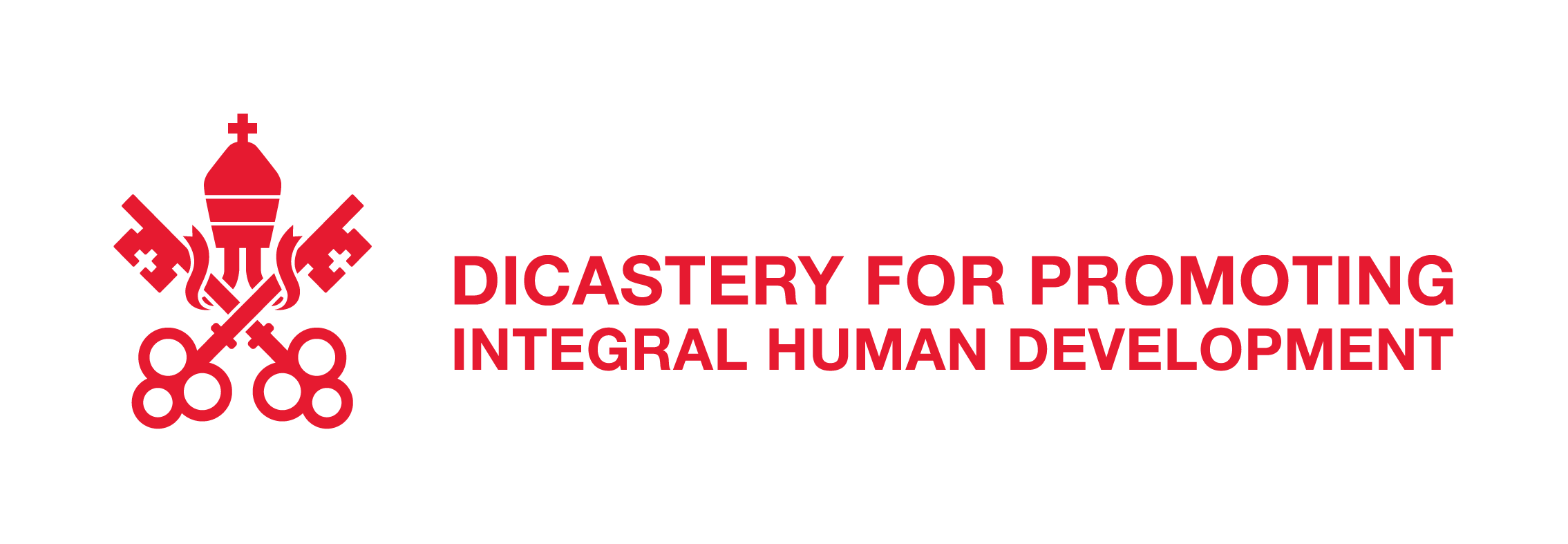How smart is smartworking?
Women for Economy Village (Text only in English)
How did remote working affect our lives, productivity, and well-being? Will it be the new standard after the pandemic? In response to these questions, The Economy of Francesco’s thematic village, Women for economy, decided to organize a space for dialogue to understand the challenges, advantages, and disadvantages that this type of work brings with it.
In the seminar, promoted by the Women for Economy Village, entrepreneur Maria Rita Fiasco was invited to share her experience and knowledge about remote working and its impact on worker’s well-being and productivity, together with other panelists from the village Women for Economy: Sara from Colombia, Ivana from Bósnia Hezergovina and Barbara from Italy. Prof. Consuelo Coradi was a commentator.
The event began with Sara, from Colombia, that highlighted that, on one hand, smart work must be more informal and flexible. But, on the other hand, it makes it difficult to establish a boundary between work and private life, since work became part of the home routine. Moreover, workers are always connected with work, even during the weekends. Also, working at home diminishes the social contact and the feeling of being part of a community.
She also stressed that the technological problems, like the poor connections, exclude an important part of the workforce, mainly in the small cities and the rural areas. Remote working as an ordinary model of work risks sharpening the existing digital divide in many countries.
Barbara from Italy commented about the pressure to work more, and the difficulties to make the balance between work, social life, and other important parts of life beyond work. She gave her personal experience that she made some strategies to not work during the weekends and in non-commercial hours.
The third commentator, Ivana from Bósnia Herzegovina, shared her personal experience as a worker in a tourist sector, which was deeply impacted during the pandemic, and forced her to change her company’s strategy. She had to elaborate and exploit new tools to reach potential customers. She begins to publish on the website short video stories about places to be visited, video guides, and so on. Therefore, the pandemic opened opportunities to create new ICT-based services. Even though at the beginning she had more time with her family, she later started feeling the worst work pressure and time constraint, also suffering from the social distance.
In the second part, Maria Rita Fiasco, who owns a company dedicated to women&tech, highlighted the positive and negative aspects of the impacts of the pandemic in the labor market. The pandemic showed different possibilities to organize the work, processes, and time. She emphasized that the companies must adapt their organization in order to preserve the mental health of their workers, avoid isolation, and ensure a balance between different activities. She gave the example of her company, which organized informal meetings for chat and jokes, and creative activities or physical exercises. Those meetings were organized every day during the mornings and were needed to create a sense of community as well.

Another important aspect is the loss of positions by women during the pandemic, mainly due to unpaid care work activities. Because of that, it is important that the companies open positions for women in the labor market, and adapt their products for the persons who have family responsibilities. Generally speaking, the need for services for families and kids is more urgent. Also, it is now important to equip the houses to be a better place to work and to take care of children and elderly at the same time.
How will work change after the pandemic? Maria Rita thinks that smart working will be a new reality, and many positive aspects could be improved by the companies. The pandemic put in focus the necessity of unpaid care work, and because of that, the companies must seek more flexibility. In order to ensure work-life balance and mental health, it is also important to have regulations and to protect the workers, both at the state and company level.
















